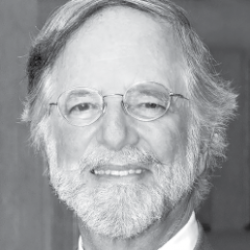This issue's articles are available below.
ELI Members may login to read and download current and past issues of the Forum.
Not a member? Join now!

LEAD FEATURE ❧ Akin to climate deniers, the EU distorts science to halt imports of food from the United States and other nations. The result is a trade imbalance in agricultural goods, hurting American producers and impoverishing developing-country farmers at the same time.
With SIDEBARs from an American farmer and two EU agricultural trade officials.

CENTERPIECE ❧ What can EPA do to help communities confront the impacts of climate change? Resilience and adaptation are the key words driving the agency's web-based portal that informs and empowers local decisionmakers as they encounter the environment of the future.

COVER STORY ❧ While the election won't reverse the Trump administration's deregulatory agenda, oversight in the House is likely to slow such efforts by casting a public light on their consequences and the means and motives of the president's agency appointees.
With SIDEBARs by Bob Sussman from the left and by Jeff Holmstead from the right.

TESTIMONY ❧ The Magna Carta and successors recognize a right to the environment as central to human existence. 193 national charters recognize such a right--but not the U.S. Constitution. This right does not lie latent in America's state constitutions, however, and can also be read into the federal document as well. Meanwhile, recognition of enviornmental rights is expanding globally.

On the first Earth Day, in April 1970, Senator Edmund Muskie called for “a total strategy to protect the total environment.” We have had time to pull this off — nearly a half century after Muskie’s clarion call — but have failed. Yes, gains in environmental quality have happened, but as time has passed, we have witnessed the emergence of global level, existential threats. The human race is pushing on or through what the Stockholm Resilience Center has called “planetary boundaries.” The old approaches have failed. But what would a new paradigm, built on lessons learned, look like?
TSCA risk evaluation approach foreseeably on Dems' agenda.
Why institutions don't respond to a clear and present danger.
Ballot measures meet with limited success in face of large spending.
Data show renewables alone don't always equate to carbon-free.
Kavanaugh's ascent is enormously significant for environmental law.
Clean Air Act practitioners debate Brett Kavanaugh's judicial record.
How best to govern geoengineering in the race to save Earth's climate.
Tax evasion that harms the global commons: no problem if it's legal?
On "Pricing Lives: Guideposts for a Safer Society."
Colleagues’ new jobs, promotions, and achievements.
Oil spill kicked off anti-pollution era.
Apple VP Lisa Jackson honored with annual prize; former Attorney General Eric Holder gives introductory address at annual Award Dinner.
Report on environmental rule of law.
Macbeth Report: Cooperative federalism reimagined.